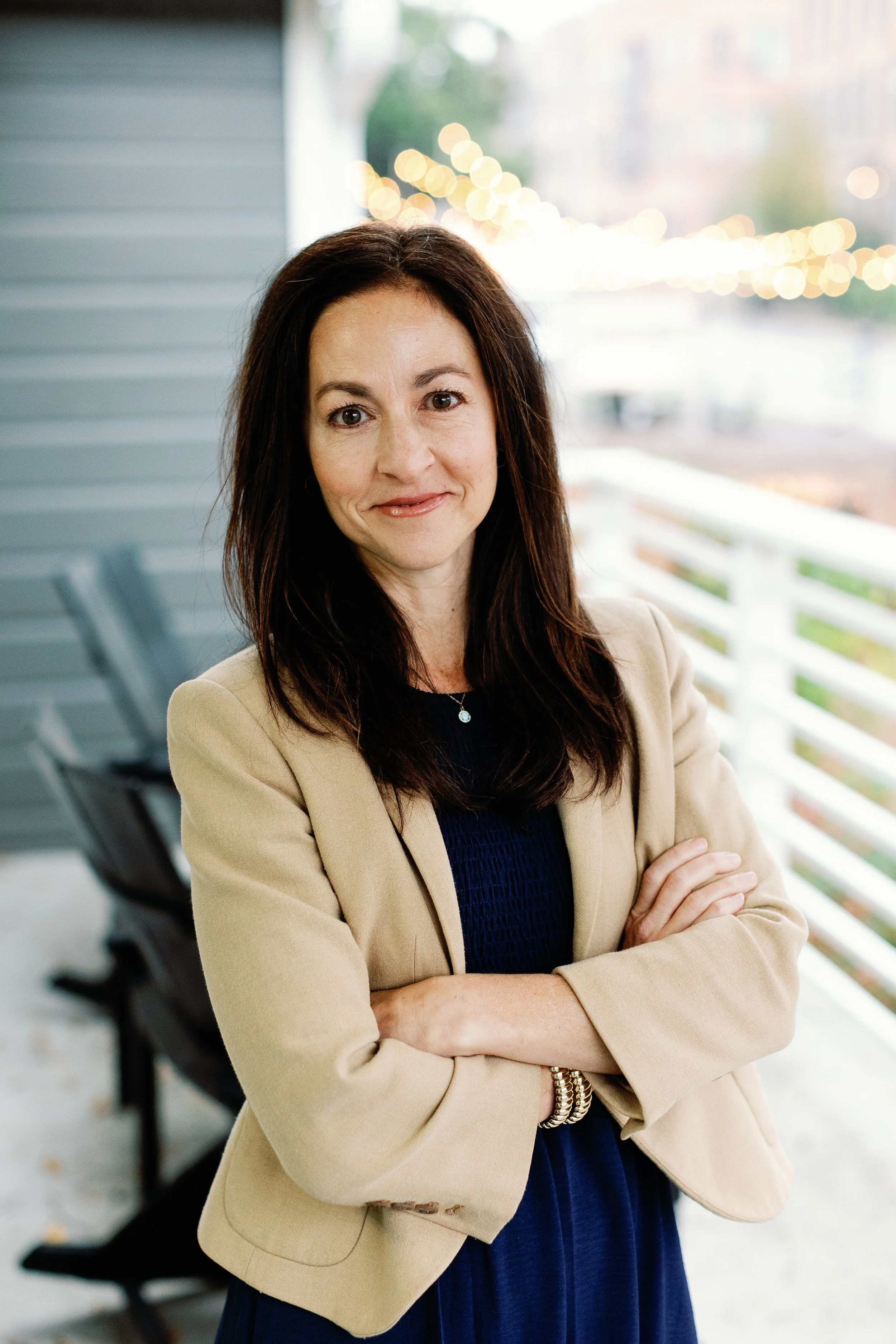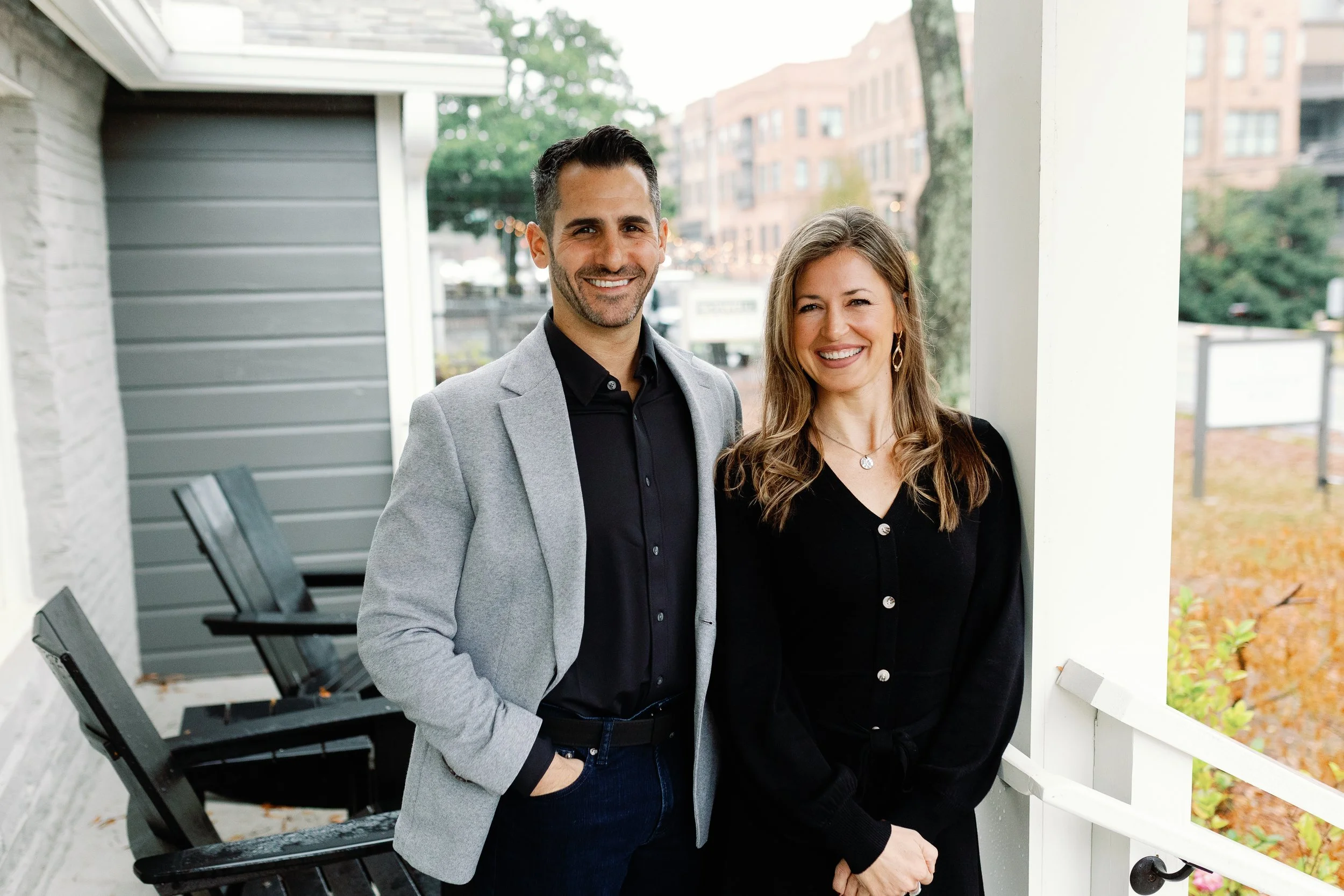
Eating Disorders Counseling
Find Freedom From Food Struggles With Compassionate Eating Disorders Counseling. Rebuild Your Relationship With Food, Your Body, and Yourself Through Integrated Therapy, Nutrition Support and Education.
Eating Disorders Counseling: Heal Your Relationship With Food & Your Body
When every meal feels like a battle, it’s exhausting—for your mind, your body, and your relationships. Maybe you’re stuck in cycles of restriction, bingeing, purging, or “starting over on Monday.” Maybe you’re constantly thinking about food, your body, or the number on the scale. Or maybe you’re watching someone you love slowly disappear into patterns you don’t know how to help them out of.
You don’t have to keep navigating this alone.
At Anchored Mind Counseling + Nutrition in Roswell, GA, we offer specialized eating disorders counseling that integrates mental health therapy and professional nutrition support. Our team walks with you toward a safer, kinder relationship with food, your body, and yourself.
We offer both in-person sessions at our Roswell office and virtual appointments for clients across Georgia, so you can receive care in the way that feels most accessible and supportive.
Approaches Tailored to Eating Disorder Recovery
There’s no one-size-fits-all recovery plan. Your story, your body, and your history matter—so your care should reflect that. Our therapists draw from a range of evidence-based and relational approaches to support lasting change:
Cognitive Behavioral Therapy (CBT):
Identify and challenge the rigid, self-critical thoughts that fuel restriction, bingeing, and body shame, and replace them with more balanced, compassionate beliefs.
Dialectical Behavior Therapy (DBT):
Build skills to manage intense emotions, urges, and black-and-white thinking around food, exercise, and body image—without turning to harmful behaviors.
Acceptance and Commitment–Informed Work:
Help you move toward your values (freedom, connection, health) instead of staying stuck in anxiety, fear, or perfectionism about your body or eating.
Narrative Therapy:
Untangle your story from diet culture, trauma, and shame. Together, we work to rewrite your relationship with food and your body in a way that honors your resilience.
Psychodynamic & Attachment-Based Therapy:
Explore how early experiences, family dynamics, and relational wounds shape how you feel about your body and your worth today.
Trauma-Informed Care & Somatic Awareness:
Many eating disorders are deeply connected to trauma, criticism, or experiences where your body felt unsafe. We move at your pace, honoring your nervous system and working gently with physical sensations, not against them.
Systemic & Family-Informed Work (especially for teens and young adults):
When appropriate, we involve parents, partners, or family members to create a supportive environment around you—not a policing one.
Every plan is collaborative. You’re not “the problem to fix”—you’re the person we partner with.
The Role of Nutrition in Eating Disorder Healing
Because Anchored Mind brings licensed therapists and registered dietitian nutritionists (RDNs) under one roof, you don’t have to piece together your care on your own.
For eating disorders, nutrition support is not about “just eat more” or “stick to a plan.” It’s about:
Restoring physical stability and nourishment so your brain and body have the fuel needed for emotional healing.
Normalizing eating patterns (regular meals and snacks, adequate energy, flexibility with foods) in a way that respects your medical needs, culture, and preferences.
Untangling fear and guilt around food, including ideas picked up from diet culture, social media, medical fatphobia, or family messages.
Supporting the gut–brain connection, recognizing that how you nourish your body can influence mood, anxiety, and cognitive function.
Your therapist can collaborate closely with an RDN at Anchored Mind so you receive consistent, aligned guidance instead of mixed messages. That means fewer “What should I do?” moments and more clarity, support, and accountability.
Eating Disorders vs Disordered Eating: What’s the Difference?
It’s common to wonder: “Is this an eating disorder… or am I just being ‘weird’ about food?”
Both eating disorders and disordered eating deserve attention and care, but they’re not the same thing.
Disordered Eating (often normalized or even praised):
Eating patterns that feel chaotic, rule-driven, or guilt-filled, but may not meet full diagnostic criteria in terms of frequency, duration, or medical impact.
Can include frequent dieting, skipping meals, “earning” or “burning off” food with exercise, cutting entire food groups, or swinging between restriction and overeating.
Often shows up as situational or intermittent: strict before vacations, holidays, events, or in response to stress, social media trends, or body comments.
May be praised as “disciplined” or “healthy,” which can make it harder to recognize as harmful.
Eating Disorders (diagnosable mental health conditions):
Involve persistent, more severe disturbances in eating, body image, and related behaviors that significantly impact physical health, emotional wellbeing, and daily life.
Include conditions such as Anorexia Nervosa, Bulimia Nervosa, Binge Eating Disorder, ARFID, and OSFED, among others.
Often come with intense fear of weight gain, obsessive body focus, extreme restriction or binge–purge cycles, and medical complications (changes in heart rate, electrolyte imbalances, fainting, GI issues, menstrual changes, etc.).
Recognized in diagnostic manuals and typically require coordinated care between mental health providers, medical professionals, and dietitians.
Important:
Disordered eating is not “less real” or “not bad enough.” It increases the risk of developing a full eating disorder, and early support can prevent symptoms from deepening.
You do not have to wait until things feel “out of control” or you hit a certain weight or lab value to deserve help. If food, exercise, or body image is taking up more space in your life than you want—it’s valid to reach out.
Who We Work With
Our team offers support for:
Adolescents (13+) navigating eating disorders or significant disordered eating patterns
College students and young adults impacted by perfectionism, comparison, and social media pressures
Adults who have been at war with their body or food for years and are ready for a different way forward
Families who want to better understand how to support a loved one in recovery
We respect all body sizes, identities, and backgrounds. Eating disorders can affect people of any gender, race, age, or weight—and your experience matters.
What You’ll Gain from Eating Disorders Counseling
While every person’s journey is unique, many clients experience:
Less mental noise around food and body image—more brain space for relationships, creativity, school, or work.
More stable, predictable eating patterns that support energy, mood, and physical health.
Practical skills for coping with urges, body-checking, comparison, and perfectionism without defaulting to harmful behaviors.
A more compassionate view of your body, moving from punishment and scrutiny toward respect, neutrality, or even appreciation.
Language and tools for communicating with loved ones about what you need (and what isn’t helpful) in your recovery.
A clearer sense of identity beyond your weight, appearance, or diagnosis—reconnecting with who you are outside of the eating disorder.
Recovery isn’t about “fixing” your body. It’s about helping you feel safer inside your body—and in your life.
Start Your Healing with Integrated Eating Disorders Care in Roswell, GA
If you or someone you love is struggling with food, exercise, or body image, you don’t have to keep pretending it’s “not a big deal.” It’s okay to say, “I need help with this.” That’s where we come in.
At Anchored Mind Counseling + Nutrition, you’ll find:
A multi-disciplinary team of therapists and dietitians who actually talk to each other.
In-person sessions at our Roswell, GA office and virtual therapy across Georgia.
The option to start with a brief complimentary phone consultation to explore fit and next steps.
Take the first step toward a calmer, more trusting relationship with food and your body.
Use our Client Portal to request an appointment or
Schedule a free 15-minute consultation to talk through your needs and ask questions.
Schedule Your Appointment
-

Kristen Kanner, RDN
NUTRITION DIRECTOR
Specializations: pediatric thru adults, food & genetic testing, weight mgmt, meal planning & mindful eating
-

Amanda Wooden, RDN
DIETITIAN
Specializations: adults, diabetes, hypertension, heart issues, PCOS, menopause, weight mgmt & sports
-

Sarah Dino, APC
COUNSELOR
Specializations: adolescents (10+) thru adults, students, young couples, religious trauma, LGBTQIA+
Who We Are
Anchored Mind Counseling + Nutrition is a local family-owned multidisciplinary private practice that seeks to invest in the lives of our clients and community. We aim to establish roots in Roswell by partnering with local organizations, offering group experiences, and building a culture of growth and generosity.
Kristen and I love what we do, as well as the town we live in. Our dream has been to work together in providing a variety of care to our clients, while deepening roots in our community and investing in the lives around us. We hope to offer services and events that reflect that dream and inspire a healthy and connected lifestyle. -Michael

